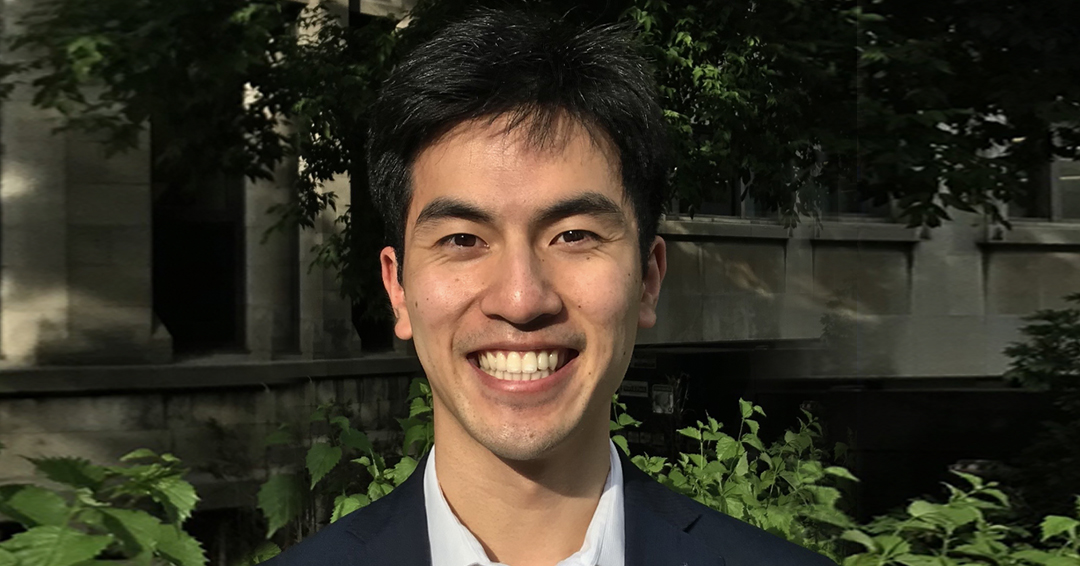
GCI alumnus Leo Shen reminisces on his time at the GCI in the lab of Prof. Jerry Pelletier, discusses what he is doing now as a medical student at the Johns Hopkins University School of Medicine and researcher in a lab, and shares advice for the next generation of cancer researchers.
How are you connected to the GCI?
During my time as an undergraduate biochemistry student at McGill between 2014-2018, I began working in various labs, eventually arriving at Prof. Jerry Pelletier’s group in the GCI where I stayed to complete a Master of Science in Biochemistry, in 2020. There, I studied mRNA translation, which is often dysregulated in cancer, and various chemical compounds that target the initiation phase of the process. I was privileged to be in Prof. Pelletier’s group, wherein his mentorship and that of the staff and other students in the lab really made for a motivating, enriching, and most importantly, fun work environment. From chalk talks about various concepts to discussions of science over drinks, the sense of camaraderie and mutual excitement about our projects set a high bar for how I hope to approach research and learning in the future.
Beyond Dr. Pelletier’s group, I was also fortunate to work with Profs. Sidong Huang, Martin Schmeing, and Donald van Meyel, all phenomenal mentors and researchers. As collaboration is central to scientific discovery, having the opportunity to work with other groups in the GCI and the rest of McGill was horizon-broadening and great fun.
What do you do now?
Now, I am a third-year medical student at the Johns Hopkins University School of Medicine. I still work in a lab, namely that of Dr. Taekjip Ha, studying genome editing and DNA repair, and many of the skills gained during my time at the GCI have carried over. I also believe that a strong foundation in the sciences and the ability to critically evaluate the literature and understand how research is conducted are essential to being a physician in today’s landscape of fast-paced discovery. The beauty of basic scientific research is that it teaches a way of thinking that carries over into many other domains, as I often find parallels between the lab and some of my more clinically focused research in ophthalmology and otolaryngology.
Outside of research, my time is largely occupied by clinical rotations, but I am also involved in a vision screening program for the communities of Baltimore, Maryland. There are many unmet public health needs, both here and abroad, and while research into root causes and innovative solutions are sorely needed, sometimes being on the ground and engaging directly with our communities can be immensely impactful and gratifying.
What is one piece of advice that you would give to the next generation of cancer researchers?
Stay curious. While I am still early in my career, I have found the greatest joy in learning about why certain things are the way they are and thinking deeply about seemingly simple things. This extends beyond research, but I have a hard time thinking of a more important quality in a scientist. All my mentors, past and present, have exhibited this quality in some form or another, and I think it has been critical to their successes. Finding joy in the little things along the way and the process of discovery itself will naturally lead to results.
How has the training received at the GCI helped you become the professional you are?
The GCI was foundational in my personal growth and career development. It showed me how exciting science can be, and it taught me how to think about problems and go about solving them. My experience at the GCI, however, would not have been what it was without all the people I met and friends I made along the way. It is difficult to find an environment filled with more passionate, bright, and kind minds than the GCI and McGill. My time there has left an indelible mark on me, and I hope to carry forward these lessons as I progress through my career.
Related:
